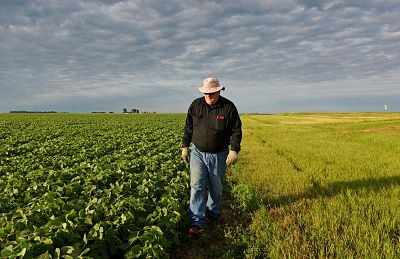The emergency assistance comes amid a growing trade war that has hurt American farmers.
WASHINGTON — The White House plans to dole out billions of dollars in "temporary aid" to struggling farmers who have been hurt by President Donald Trump's tariffs and trade war, a senior administration official told NBC News.
An announcement on the aid — a little over three months before the midterm elections — is expected later Tuesday, the official said. News of the aid package was first reported by The Washington Post, which said that $12 billion be paid out via at least three avenues: Direct assistance; a food purchase program; and a trade promotion program.
Trump's new emergency aid package comes just days after members of the Iowa Corn Growers Association met with lawmakers on Capitol Hill to express their growing concerns that they will not be able to keep their businesses afloat after this year's harvest, if prices continue to drop due to the trade war.
Republican and Democratic lawmakers have echoed those concerns, but Trump has remained steadfast in pushing his trade goals.
Earlier Tuesday, he tweeted: "Tariffs are the greatest."
The aid comes amid a growing trade war between the U.S. and other world powers that has had a particularly harmful effect on American farmers.
In March, after Trump in March announced a 25 percent tariff on steel imports and 10 percent tariff on aluminum imports from China, pork producers in the U.S. were hit with a retaliatory 25 percent tariff on their China-bound exports.
Trump expanded tariffs to products from Mexico, Canada, and the E.U. in the months after that, prompting those countries, too, to implement retaliatory tariffs placed on U.S. exports.
China has since increased its tariff on U.S. pork exports to 50 percent, and Mexico imposed its own 20-percent tariff on U.S. pork. While Mexico left American corn off of their list of goods with tariffs, both the E.U. and China levied an additional 25-percent tariff on the crop.
Those tariffs have caused corn farmers and pork producers,in particular, to take huge financial hits. Markets for both have seen a roughly 15 percent drop in prices since the spring when Trump slapped his first tariffs on imported steel and aluminum from overseas.












